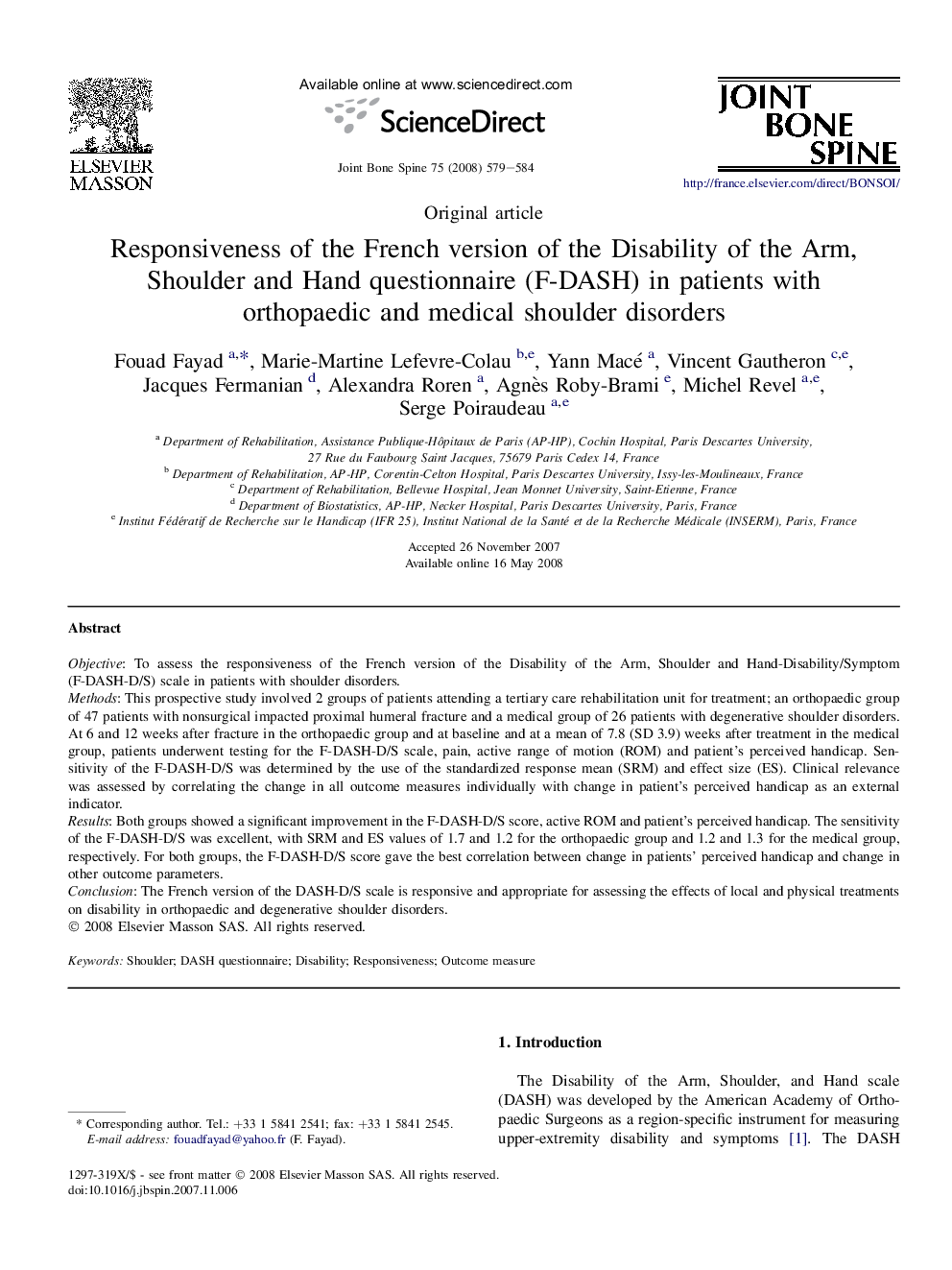| Article ID | Journal | Published Year | Pages | File Type |
|---|---|---|---|---|
| 3366797 | Joint Bone Spine | 2008 | 6 Pages |
ObjectiveTo assess the responsiveness of the French version of the Disability of the Arm, Shoulder and Hand-Disability/Symptom (F-DASH-D/S) scale in patients with shoulder disorders.MethodsThis prospective study involved 2 groups of patients attending a tertiary care rehabilitation unit for treatment; an orthopaedic group of 47 patients with nonsurgical impacted proximal humeral fracture and a medical group of 26 patients with degenerative shoulder disorders. At 6 and 12 weeks after fracture in the orthopaedic group and at baseline and at a mean of 7.8 (SD 3.9) weeks after treatment in the medical group, patients underwent testing for the F-DASH-D/S scale, pain, active range of motion (ROM) and patient's perceived handicap. Sensitivity of the F-DASH-D/S was determined by the use of the standardized response mean (SRM) and effect size (ES). Clinical relevance was assessed by correlating the change in all outcome measures individually with change in patient's perceived handicap as an external indicator.ResultsBoth groups showed a significant improvement in the F-DASH-D/S score, active ROM and patient's perceived handicap. The sensitivity of the F-DASH-D/S was excellent, with SRM and ES values of 1.7 and 1.2 for the orthopaedic group and 1.2 and 1.3 for the medical group, respectively. For both groups, the F-DASH-D/S score gave the best correlation between change in patients' perceived handicap and change in other outcome parameters.ConclusionThe French version of the DASH-D/S scale is responsive and appropriate for assessing the effects of local and physical treatments on disability in orthopaedic and degenerative shoulder disorders.
